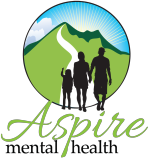Services
Individual Therapy (Adolescent or Adult)
Our initial goal of therapy starts with building trust so that we can communicate in a safe setting and form a healing relationship. Through this relationship, we create an environment where it is acceptable to challenge, to experience difficult emotions and to attempt new, healthier ways of living. My approach to working with adults and adolescents may consist of exploring their thoughts, feelings, and their relationships with loved ones in the past and present. At appropriate times, I use Cognitive Behavioral Therapy (CBT) techniques to analyze and restructure negative thought patterns into more realistic and productive ways of thinking and to formulate a plan for changing behavior.
Play Therapy (Child)
Young children usually have difficulty with making sense of and verbalizing their emotions. They have not yet developed language and communication skills like adults. Children use play to have fun, communicate and learn; it is the medium with which they function. Through play, children naturally express their internal world – their joys, fears, fantasies and desires. Play therapy uses toys and materials familiar to children (ie. blocks, puppets, drawings) in order to achieve the same benefits as “talk therapy” with adults. Play therapy builds trust, improves relationships and encourages expression of feelings.
Family Therapy
Family members interact and affect each other in profound ways. Families function best when there are appropriate hierarchies and boundaries – ie., spouses or partners function as a team in their marriage and, if they are parents, in child rearing. The degree of supervision and independence children need may vary according to their personalities, developmental stage and environment. For families to be a safe haven of love
and respect, they must adapt to change while maintaining their cohesiveness. When difficulties arise between family members, family therapy can be effective in re-establishing roles, boundaries and healthy communication patterns.
Couples Therapy
The focus of couples counselling is on improving the quality of the relationship for both partners. Couples counseling looks at issues like communication, honesty, shared responsibilities, commitment, and mutual support. Problems such as abuse will also be addressed.
Many types of partnership can benefit from couples counseling, including married couples, couples preparing for marriage, cohabiting couples, dating couples, separated couples, and couples preparing for a divorce. Although originally developed as marital therapy, couples counseling now equally recognizes and works with unmarried couples, as well as lesbian, gay, bisexual and transgender couples
Groups
Aspire offers groups for individuals ages 10 and up as well as multi-family groups. Participants of group therapy often report improved self-esteem, sense of safety after a traumatic experience and are able to face adversity, develop positive social skills, learn how to resolve conflict and manage anger, and resolved core issues that lead to co-dependency.
